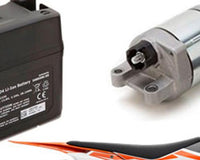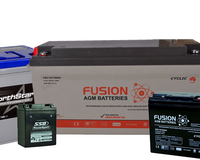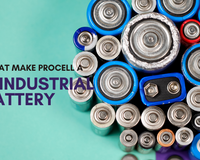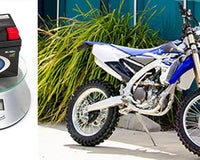Lithium batteries are considered to be one of the biggest advancements in battery technology. They are a new player on in the battery game, and manufacturers are seeing why they’re replacing lead-acid batteries in many applications. The main types of lithium chemistries are Lithium-Ion, Lithium Iron Phosphate and Lithium Polymer.
 In recent years we’ve seen lithium-ion technology used in smartphone, tablet and laptop batteries. Lithium batteries also stealing the spotlight and replacing lead-acid batteries in larger applications as well. SSB Powersport’s lithium range is a viable alternative for their lead-acid motorcycles batteries due to their low maintenance and long shelf life. Even the automotive industry is on board, car manufacturer Tesla has been using lithium batteries to power their luxury electric cars. Not to mention new solar storage solutions that are used to power entire houses.
In recent years we’ve seen lithium-ion technology used in smartphone, tablet and laptop batteries. Lithium batteries also stealing the spotlight and replacing lead-acid batteries in larger applications as well. SSB Powersport’s lithium range is a viable alternative for their lead-acid motorcycles batteries due to their low maintenance and long shelf life. Even the automotive industry is on board, car manufacturer Tesla has been using lithium batteries to power their luxury electric cars. Not to mention new solar storage solutions that are used to power entire houses.
So why are manufacturers so hooked on lithium?
They’re extremely lightweight. Most lithium batteries could be lifted by a young child because their electrodes are made of lightweight lithium and carbon. Despite their weight they are still very energy dense and can store more energy than a lead-acid battery may be able to due to lithium being a reactive element and a lot of energy can be stored in its atomic bonds. They can pack a lot of power into a small space.
Lithium Iron Phosphate ( LiFePO4 ) batteries are currently the safest type of lithium battery on the market thanks to their chemistry. Unlike lithium-ion technology, there is no risk of the battery exploding or overheating as the oxygen is bonded tightly to the molecule. They are also non-toxic, meaning they’re environmentally friendly and will not pose a risk to health. They also have a life expectancy of 5-7 years.
Another reason why lithium batteries are becoming so popular is that they have a better lifespan. Lithium batteries tend to hold their charge, typically only losing 5% per month. This makes them a much more efficient alternative. They also don’t suffer from the memory effect , where you have to completely discharge them before you recharge. Lithium batteries have more charging cycles resulting in a longer lifespan.
Unfortunately, these batteries do have their flaws:
- They degrade at a faster rate.
- Other types of lithium batteries (such as lithium ion and polymer batteries) can overheat and run the risk of explosion.
- If a lithium-ion battery pack fails it also runs the risk of exploding.
- They can be somewhat more expensive than lead-acid batteries.








